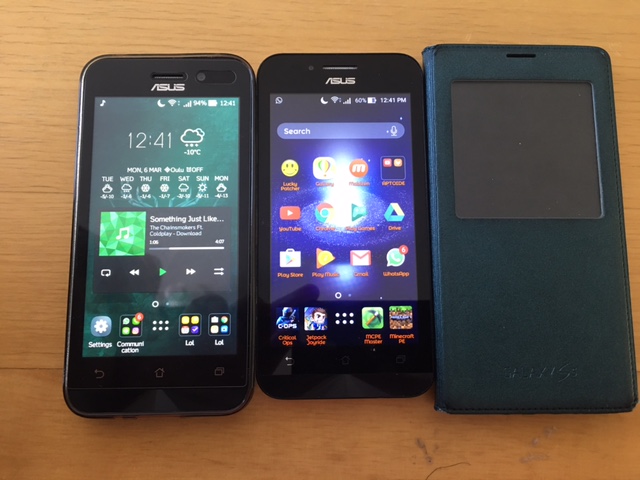
It was a period of anxiety.
Some or my kids were doing well with the restriction but the others were not happy about it. When I was in my lecture, I received messages from them asking me why I blocked this and that, not being fair to them, and causing them difficulties.
As parents, I had the inclination to treat their complaints with belittlement. “I know what is good and what is not, you should just follow” kind of attitude sometimes got me. But I kept reminding myself that my original intention was to shape them. I cannot do this if I am harsh, plus ironically permissive. I have to remain gentle, but firm.
I switched on these functions:
- Day limit (3 hours)
- Bedtime blocker (9pm to 8am)
- Blocked Apps – I blocked Google Play Store so no new app can be downloaded.
I didn’t use school time blocker because the school has its own regulation when students can use mobile phone and when they can’t use it. My children also have different school hours everyday, which make it difficult for me to manage.
At the beginning, I blocked most of the apps they downloaded. I blocked Minecraft (the most annoying), Facebook, Instagram and Youtube, on top of many other apps they have on their devices. I allow the calculator, camera, gallery, Google apps and exceptionally the WhatsApp. My kids use WhatsApp to call and message me and my wife, as well as their own school friends.
I left the browser open, allowing them to use it for their school needs. They use it to browse Wikipedia, reading articles, checking bus timetable and of course, they can also watch Youtube on it! I am okay with it but pretty annoyed with the amount of time they can spend watching anime and all other stuffs on Youtube.
Restricting the duration is again causing us trouble.
Everyday when I came home, I became the bad guy. The first thing I got is the bombardment with questions why, why and why. When my wife joined as parents to manage the device, we have to synchronise the decisions on what is permissible and what is not. Having many decision makers can be positive and can be challenging depending on how efficient and effective the communication between parties. In our case, we shared feedback each other to reach better decisions.
After two weeks implementing the restriction, I collapsed! I struggled to calm myself down because it started to effect the relationship between all of us in the family.
I decided to switch off completely the entire functions and told them to use their own ‘wisdom’ in deciding what is good and what is not. I was sulking over the decision and harboured a grudge!
It was tough. I am also a master student and already with so many things on my plate. Having to deal with the protest and constant statement of dissatisfaction from the kids caused me a lot of anxiety.
It took me several days to rationalise everything and on the third day after the suspension of Screen Time, I sat down with kids and talked again with them. I showed them some articles, and Youtube videos to make them realise that I had no ill intention against them. Everything I did was to assist them.
THE DISCUSSION
Freedom is good. Freewill has to be exercised.
 credit photo: http://etc.usf.edu/
credit photo: http://etc.usf.edu/
I hold a handkerchief. The handkerchief fights against me. It wants freedom. It doesn’t want me to hold itself. Let it go. I let it go, and the handkerchief fell on the floor. The kite is flying beautifully across the sky. But if the kite string is broken, the kite will fly with no direction and eventually fall. A helicopter and an aircraft also do not fly freely. It must always contactable, connected to at least one control tower.
It is similar to us as human being. We have the freedom, but the freedom has to be attached to some principles. At the moment, I am using the Screen Time app to assist my effort in monitoring the children to regulate their decisions. But my intention is to gradually allowing them to make their own decisions based on sound principles they believe in. So, please don’t hate me when I am doing this. The more you cooperate and collaborate in setting up the routine, the more freedom you have because at the end, someone who follows some rules in this life will have more freedom that someone who consistently breaks the rules and caught in ‘accidents’ which will rip away the freedom he or she had before.
Alhamdulillah, now we have better common understanding towards each other. Now, I still implement the bedtime blocker between 9pm to 8am. Right from beginning, I don’t allow any devices to be taken to the bedroom. All devices including mine must be ‘parked’ at the charging station I created using the shoe box in the living room.
I do not implement the day limit because even without the limit, they will use it in reasonable amount of time because the hours they spend at home after coming back from school and before going to bed are not that much.
We are still reviewing the issue from time to time. I believe that effective communication is the key to positively nurture the right habit.
This is the premise of my approach:
PRELIMINARY GUIDANCE FOR PARENTS
Although much remains to be researched, clinicians can specifically raise the issue of interactive/mobile media use with parents of young children; in fact, parent or child mobile device use in the office commonly presents opportunities for teachable moments. As with television, it is crucial to ask how parents decide which technology and content is best for their children and how they monitor and set rules for use. Violence on mobile media should be avoided, and when encountered, children should be helped to understand it. Providers can recommend age-appropriate, educational content and suggest the use of resources such as PBS Kids (www.pbskids.org), Sesame Workshop (www.sesameworkshop.org), or Common Sense Media (www. commonsensemedia.org) to guide media choices. Parents should be encouraged to try a game or app first, play it with the child, and ask the child about it afterward to see what he or she is learning. Clinicians should strongly emphasize the benefits of parents and children using interactive media together to enhance its educational value. In addition, asking about mobile/ interactive media use provides a window into how parents help their children learn to calm down and is an opportunity to discuss how media can either support or displace important parent-child interactions and play. Digital resources provided by early childhood organizations such as Resources for Early Learning (www.resourcesforearlylearning.org) or Zero to Three (www.zerotothree.org) can provide parents with ideas for other developmentally appropriate activities to pursue with their child, and provide alternative strategies for teaching a child to self regulate when distressed or bored [1. Radesky, J. S., Schumacher, J., & Zuckerman, B. (2015). Mobile and interactive media use by young children: the good, the bad, and the unknown. Pediatrics, 135(1), 1-3.].
GOOD CUSTOMER SERVICE
I would like to express my sincerest appreciation to the Screen Time App team especially the founder himself, Mr Steve Vangasse, for getting in touch with users like me and shared feedback on our needs. I also had an issue with my son’s ASUS smart phone. The Auto Start Manager on ASUS device can block Screen Time from automatically restart itself and because of that, I cannot trace my son’s usage of his mobile phone unless he manually touch the app to active Screen Time. And it doesn’t make sense at all for him to voluntarily do that.
I described my problem to the team, and they guide me step by step on how I can overcome this problem. The instruction is very clear and now all my kids’ smart phones are equally monitored in a better way.
The struggle shaping and education continue.
Hasrizal
Oulu, Finland
That’s cool!